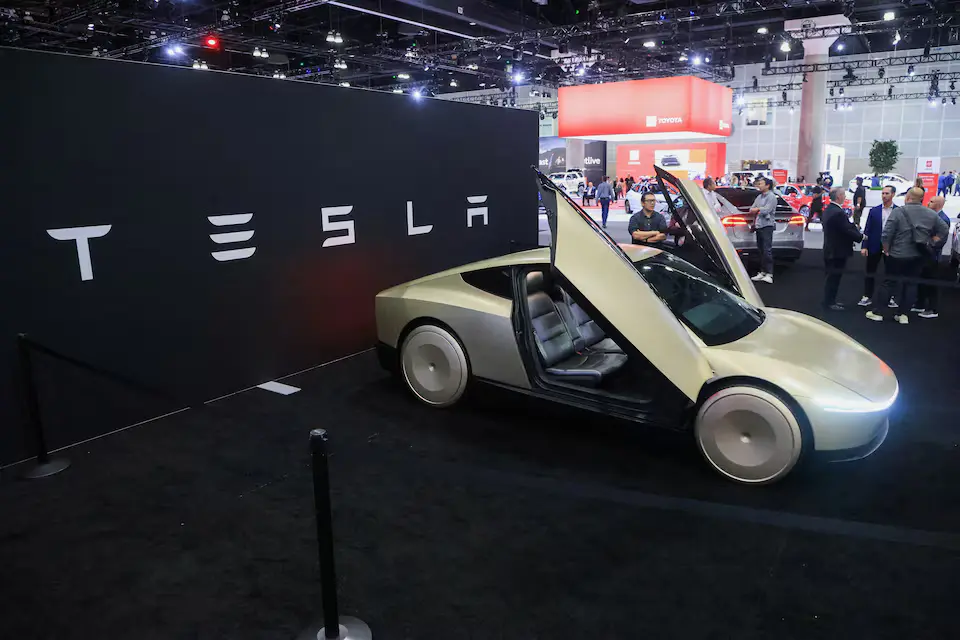Musk Confirms $16.5 Billion Tesla Chip Deal with Samsung Electronics
By Lisa F. Keith

Tesla Inc. has officially entered into a groundbreaking semiconductor supply agreement with Samsung Electronics worth approximately $16.5 billion, CEO Elon Musk announced on July 28, 2025. Musk confirmed that Samsung’s newly constructed fabrication plant in Taylor, Texas, will be dedicated to producing Tesla’s next-generation AI6 chips—crucial components for its autonomous driving system. The ten‑year contract, extending through the end of 2033, represents Samsung’s largest foundry deal to date and is poised to reshape its struggling contract manufacturing business. Musk emphasized that the strategic importance of this partnership “is hard to overstate,” noting that Tesla will play an active role in ensuring manufacturing efficiency and that he “will walk the line personally to accelerate the pace of progress” given Tesla’s proximity to the facility. The chips will power Tesla’s Full Self-Driving (FSD) systems and other AI-enabled vehicle features, placing Samsung squarely in the elite, though highly competitive, field of automotive chip production. Analysts say the deal could reduce Samsung’s foundry losses dramatically—estimated in excess of ₩5 trillion (roughly $3.6 billion) in the first half of 2025—and inject much‑needed revenue into a division that has fallen behind rivals such as TSMC and SK Hynix in attracting leading AI clients. While Samsung leads the world in memory chip production, it has struggled to compete on advanced logic nodes, particularly 2‑nanometer chip manufacturing—yield issues have limited adoption by marquee clients. Industry experts expected the Hyundai‑Tesla order would not involve Samsung’s most advanced 2nm nodes given these yield challenges. Still, the depth and duration of the deal signals confidence in Samsung’s roadmap and commitment to improve its AI chip manufacturing capability. Tesla’s decision to diversify its semiconductor suppliers represents a strategic move aimed at mitigating risk and gaining pricing leverage—Tesla previously relied heavily on TSMC for its earlier AI chips. The deal also aligns with Samsung’s ambitions to expand its foundry services, potentially opening doors to other automobile manufacturers eyeing AI-enabled chips for battery management, infotainment systems, and autonomous technology. The facility in Taylor, Texas, is central to the agreement—but its long-delayed launch had previously been stalled due to challenges in securing major customers. Analysts say that Tesla’s involvement and long-term commitment could stabilize operations and accelerate the factory’s ramp-up. Musk characterized the proximity of the fab—“not far from my house”—as beneficial in enabling hands-on oversight. The announcement had immediate stock-market implications: Samsung shares climbed over 4% in Seoul trading, marking the most significant intraday gain in nearly a month. Investors hailed the contract as validation of Samsung’s foundry strategy and a needed counterweight to TSMC’s dominant 67.6% global foundry share recorded in early 2025. Samsung’s share had slipped to approximately 7.7%, underscoring urgency for meaningful high-end chip partnerships. Analysts project that the new contract could boost Samsung’s foundry revenues by nearly 10% annually, depending on product mix and yield improvements. The deal is also seen as a geopolitical plus: strengthening U.S.–South Korea ties in strategic industries, potentially reducing exposure to tariff risks and enhancing U.S. chip supply chain resilience under the CHIPS Act framework. From Tesla’s perspective, the move reflects deeper forays into vertically integrated AI chip development: Tesla’s previous AI chips—including FSD HW3 and HW4—were manufactured by Samsung, but this new agreement signals a leap toward greater scale and design ownership for its AI6 generation. Financial analysts view the agreement as transformational for both companies—Samsung gains long-term foundry visibility and financial stability, while Tesla cements its trajectory as not just an EV automaker but an AI hardware innovator. Key risks remain: Samsung must demonstrate consistent manufacturing yields at advanced nodes, and competition from TSMC remains fierce among global clients such as Apple, Nvidia, and Qualcomm. Still, for Samsung investors, the deal has renewed confidence that the company may recapture market momentum. For Tesla, the partnership supports its broader ambition to scale autonomous hardware across its vehicle lineup and deepen in‑house control over performance-critical chip production. Elon Musk’s confirmation of the Samsung‑Tesla chip deal marks a watershed moment in the state of modern semiconductor alliances—anchoring the importance of AI‑focused joint ventures in a rapidly evolving industry. It may redefine Samsung’s foundry direction and reinforce Tesla’s role as a pioneer in vertically integrated AI hardware strategy across electric vehicles.